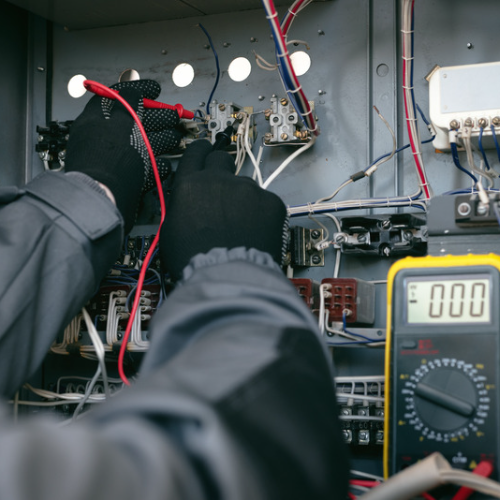
As you go about your work tasks that involve portable electric tools (e.g., drills, saws, sanders and grinders), electrical outlets or wiring, you may not give much thought about the hazards electricity can pose. Yet, it’s vital to take the proper safety precautions to avoid an electrical shock—a potentially life-threatening injury resulting from direct contact with a high-voltage source.
Electrical Shock Explained
According to OSHA, electricity travels in closed circuits, normally through a conductor. However, sometimes a person’s body—an efficient conductor of electricity—mistakenly becomes part of the electric circuit. An electrical shock can occur when a person’s body completes the current path with one of the following components:
- Both wires of an electric circuit
- One wire of an energized circuit and the ground
- A metal part that accidentally becomes energized
- Another conductor that is carrying a current
When a person receives an electrical shock, electricity flows between parts of their body or through their body to the ground.An electrical shock can result in burns, muscle contractions, seizures, loss of consciousness and—in severe cases—cardiac arrest.
Electrical Safety Measures
A key factor in preventing electrical shocks is maintaining portable electric tools. As such, always examine tools for these conditions:
- Defective or broken insulation
- Improper or poorly made connections to terminals
- Broken or otherwise defective plugs
- Loose or broken switches
- Sparking brushes
If any of these conditions exist, have the tool repaired, report it to your supervisor and—above all—do not use it. In addition to inspecting portable electric tools, be sure to follow these measures:
- Do not use frayed wiring or outlets with burn marks, cracked casing or sparks coming off them. Avoid two-prong outlets when possible.
- Refrain from repairing or adjusting portable electric tools while they are plugged in.
- Do not use portable electric tools in the presence of flammable vapors or gases (unless they are designed for such use).
- Keep portable electric tools, plugs and wiring away from water and damp surfaces at all times. Never touch these items with wet hands.
- Use the required personal protective equipment for all electrical tasks, even if it may seem unnecessary.
If you or a co-worker receives an electrical shock, it’s crucial to seek immediate medical attention. Even if the victim does not exhibit signs of injury or harm, internal injuries may have resulted from the shock. Contact your supervisor for more information on electrical safety.

Safety Committee Best Practices
A safety committee can unite employees, management, and safety professionals to address workplace hazards proactively.

2023 Census: Construction Tops Fatality Rates Among Industries
The U.S. saw 5,283 workplace fatalities in 2023, with a rate of 3.5 per 100,000

New ACA Reporting and Penalty Relief
In late 2024, Congress passed laws reducing ACA reporting requirements and limiting IRS “pay-or-play” penalties.
